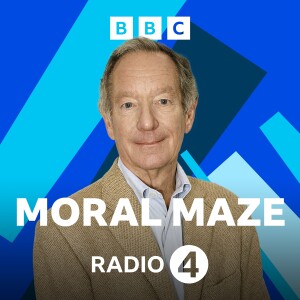
We’d probably all be able to give the government a score out of ten for its handling of the pandemic – but how many of us have even thought of subjecting ourselves to the same level of scrutiny? From illegal raves, house parties and large family weddings to the everyday decisions not to wear a mask or socially distance, how much should the public take a share of the responsibility for the spread of the virus? The author and commentator Matthew Syed claims that personal responsibility is “in retreat”. Citing a new drug to tackle obesity by hijacking the brain’s appetite-regulating system – while evidently good news – he cautions against the pernicious effects of easy fixes on human character and our sense of self. When a homeless person dies on the streets, many will view that tragedy as a “failure of the system”, and it would be unpopular to suggest the cause lies, even in small part, with the individual. Yet, individual autonomy is today’s sacred creed and it’s argued that with rights come responsibilities. Others believe there is a flaw in that logic because, as the pandemic has shown, we don’t all have the same resources or enjoy the freedom to pursue our lives as we would choose; that we are all products of our social background and no choice is made in a vacuum. What has our response to the pandemic revealed about the value we place in personal responsibility compared to other countries and cultures? Have we made too much or too little of the idea? And what does this tell us about how we should be tackling all kinds of social issues? Does an emphasis on free will, choice and responsibility help us to understand them better, or can it obscure what’s really going on?
Producer: Dan Tierney.
view more
More Episodes
Defence versus Foreign Aid
 2020-11-26
2020-11-26
 2020-11-26
2020-11-26
Democratic Legitimacy
 2020-11-11
2020-11-11
 2020-11-11
2020-11-11
The Morality of Mortality
 2020-11-04
2020-11-04
 2020-11-04
2020-11-04
Celebrity Power
 2020-10-28
2020-10-28
 2020-10-28
2020-10-28
Global Capitalism and the ‘Lost Generation’
 2020-10-22
2020-10-22
 2020-10-22
2020-10-22
The Moral Authority of Organised Religion
 2020-10-14
2020-10-14
 2020-10-14
2020-10-14
Lived Experience
 2020-10-08
2020-10-08
 2020-10-08
2020-10-08
Moral Lessons for a Post-Covid World
 2020-08-05
2020-08-05
 2020-08-05
2020-08-05
The Death of the City?
 2020-07-29
2020-07-29
 2020-07-29
2020-07-29
The Morality of the British Empire
 2020-07-22
2020-07-22
 2020-07-22
2020-07-22
How and why we educate
 2020-07-15
2020-07-15
 2020-07-15
2020-07-15
Gambling
 2020-07-08
2020-07-08
 2020-07-08
2020-07-08
‘Groupthink’
 2020-07-02
2020-07-02
 2020-07-02
2020-07-02
China
 2020-06-25
2020-06-25
 2020-06-25
2020-06-25
Racial Justice
 2020-06-18
2020-06-18
 2020-06-18
2020-06-18
Isolation
 2020-03-26
2020-03-26
 2020-03-26
2020-03-26
Danger and Opportunity?
 2020-03-20
2020-03-20
 2020-03-20
2020-03-20
Islamophobia
 2020-03-12
2020-03-12
 2020-03-12
2020-03-12
Coronavirus
 2020-03-05
2020-03-05
 2020-03-05
2020-03-05
Profiling, Safety and Trust
 2020-02-27
2020-02-27
 2020-02-27
2020-02-27
012345678910111213141516171819
Create your
podcast in
minutes
- Full-featured podcast site
- Unlimited storage and bandwidth
- Comprehensive podcast stats
- Distribute to Apple Podcasts, Spotify, and more
- Make money with your podcast
It is Free
- Privacy Policy
- Cookie Policy
- Terms of Use
- Consent Preferences
- Copyright © 2015-2024 Podbean.com



